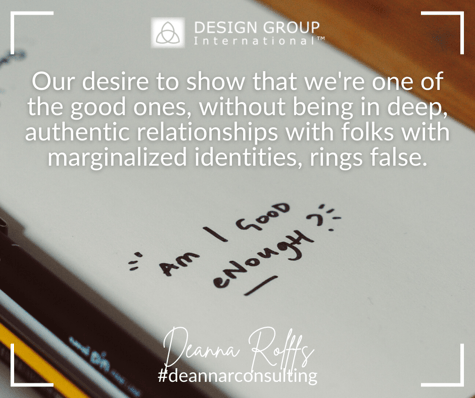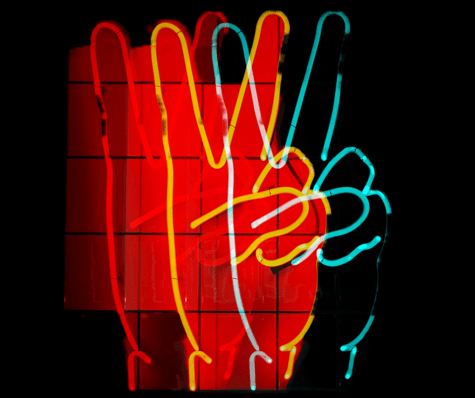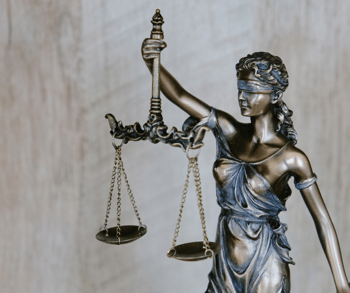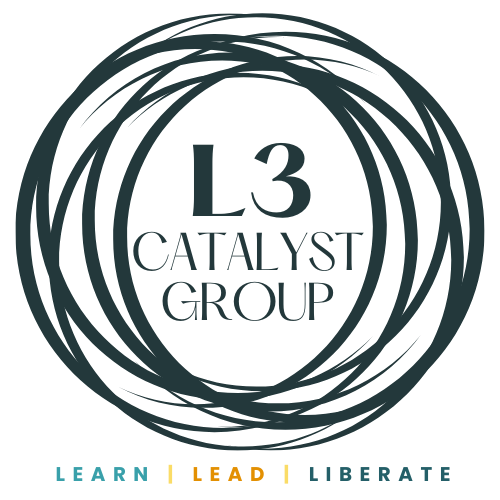Yes, I want to be one of the good ones. You too?
Yes, I’m referring to wanting to be a good white person. You know, the one that knows that racism is real, that isn’t fragile about being called white, wants to take risks and stick their neck out, work to become a co-conspirator, fall back and support when needed, etc. While the intention can be true, this mindset can get us into trouble.
The desire to be a good white person, centers us, making it about we white folks. If our narrative, our credit, our attempted allyship is at the center, what are we missing?
I’m reminded that we don't know what we don't know.
 As much as we try, we learn, and we listen, we haven’t lived the oppression that others experience. Our lack of awareness, of experience, blinds us. I don’t have to travel ten floors to find an all-gender bathroom at a conference. I don’t get stopped by the police if I travel through a wealthy area of town. I don’t hear bantered slurs referring to my identity. I don’t see mothers and babies that look like me dying at the rates of mothers and babies in developing countries. I don’t see prisons filled with people that look like me. I don't know the reality of being asked to lead anti-racism (or DEI) commitments, and then at most turns being minimized, talked over, shushed, asked to go slower, say it nicer, or silenced when mentioning the reality of the experience of People of Color.
As much as we try, we learn, and we listen, we haven’t lived the oppression that others experience. Our lack of awareness, of experience, blinds us. I don’t have to travel ten floors to find an all-gender bathroom at a conference. I don’t get stopped by the police if I travel through a wealthy area of town. I don’t hear bantered slurs referring to my identity. I don’t see mothers and babies that look like me dying at the rates of mothers and babies in developing countries. I don’t see prisons filled with people that look like me. I don't know the reality of being asked to lead anti-racism (or DEI) commitments, and then at most turns being minimized, talked over, shushed, asked to go slower, say it nicer, or silenced when mentioning the reality of the experience of People of Color.
My life experience brings with it significant unearned advantage. My skin color, ability, and gender identity do not make my life harder. (Yes, I wrote this before coming out as nonbinary: On Being GenderQueer.)
Anti-oppression commitments often bring with them a wide range of defensive moves. (anti-racist, anti--misogynist, anti-transphobic, etc). I’d like to unpack a few so that we increase our awareness. When we notice, then we can do something about it.
I mention this not to beat you up, feign the victim, pull power back to myself, or assuage my guilt or shame. Commitment to name something we're working on that isn't pretty is a necessary part of doing the work.
I was introduced to a new definition of accountability recently by some very brave clients. Here are the critical components to this definition:
- Self-Reflection
- Apologizing
- Repair
- Behavior Change
Daily, I observe leaders' desire to show that we're the good ones. It's critical to grow our ability to take time, walk away, hold the complexity, and self-reflect. The ability to apologize is well-documented, yet very difficult to do. Repair of the relationships is arduous, uncomfortable, and critical. Behavior change is really where we demonstrate who we are and what we value. Each of these four items is complex. Without these skills and abilities, our desire to be one of the good ones rings false. Without being in deep, authentic relationships with folks with marginalized identities, we aren't walking the talk.

This definition of allyship from the Anti-oppression network helps us unpack this, see with new eyes, and take action. Allyship is:
"an active, consistent, and arduous practice of unlearning and re-evaluating, in which a person in a position of privilege and power seeks to operate in solidarity with a marginalized group
Allyship is not an identity—it is a lifelong process of building relationships based on trust, consistency, and accountability with marginalized individuals and/or groups of people. Allyship is not self-defined—our work and our efforts must be recognized by the people we seek to ally ourselves with. It is important to be intentional in how we frame the work we do. Who we are showing support for? How are we showing our commitment to ending [a system of oppression]>How are we using our privilege to help
Being anti-oppression means accepting our responsibilities:
we are not acting out of guilt, but rather out of responsibility

- We actively acknowledge our privilege and power and openly discuss them: we recognize that as recipients of privilege we will always be capable of perpetuating systems of oppression from which our privilege came
- We listen more and speak less: we hold back on our ideas, opinions, and ideologies, and resist the urge to “save” the people we seek to work with as with adequate resources and support, they will figure out their own solutions that meet their needs.
- We do our work with integrity and direct communication. We take guidance and direction from the people we seek to work with (not the other way around), and we keep our word.
- We do not expect to be educated by others. We continuously do our own research on the oppressions experienced by the people we seek to work with, including herstory/history, current news, and what realities created by systems of oppression look, feel, smell, taste and sound like.
- We build our capacity to receive criticism, to be honest and accountable with our mistakes. We recognize that being called out for making a mistake is a gift—that it is an honour of trust to receive a chance to be a better person, to learn, to grow, and to do things differently.
- We embrace the emotions that come out of the process of allyship, understanding that we will feel uncomfortable, challenged, and hurt.
- Our needs are secondary to the people we seek to work with. We are responsible for our self-care and recognize that part of the privilege of our identity is that we have a choice about whether or not to resist oppression; we do not expect the people we seek to work with to provide emotional support (and we’re grateful if they do)
- We do not expect awards or special recognition for confronting issues that people have to live with every day and redirect attention to the groups we are supporting, and the issues they face, when we do.
In short, we are not acting out of guilt, but rather out of responsibility."
Anti-racism isn’t self-improvement for white people. Liberation of the oppressed is the goal. For trans people, non-binary people, Black and Indigenous People of Color, and other marginalized folks is life and death. I don't want my penchant to be seen as one of the good ones to get in the way of liberation any longer.
When you see oppression, it takes significant mental gymnastics to un-see it. Let's not un-see it. Daily examples of oppression are ever-present, shocking, heart-wrenching, gut-churning, system-shocking pain. It's just as painful to see myself and folks with privilege center our need for comfort and safety before the most basic human needs of those with marginalized identities.
I also see hope, every day. I experience a lot of joy. But toxic positivity tricks me into numbing and overlooking the pain. Holding the pain with the beauty and connectedness is the resistance. It is the work.
If you are a person with unearned advantage (privilege), you may be wondering what you can do about injustice, recognizing you want to be one of the good ones. I remind myself of these things daily:
 Expect to get it wrong. Keep trying anyway; it’s worth it.
Expect to get it wrong. Keep trying anyway; it’s worth it.- Don’t expect perfection from yourself. Embrace mistakes. Learn from them. Build the muscle around oppression topics to not expect perfection of yourself or others.
- Ask yourself what it's like for the person experiencing oppression. Ask your friends; don’t expect them to teach you. Ask to listen within a relationship of trust.
- Prioritize those with marginalization. They are the experts.
- Feel it. Notice how and when anxiety shows up in your body. Notice how that motivates us to make defensive moves to protect ourselves.
- Equity is not a zero-sum game. McGee’s book The Sum of Us unpacks this in great detail. Liberation and abundance are real, they don't have limits.
- Push back to keep the status quo is swift, fierce, and can be shocking as we move to see it more clearly. Displayed via a multitude of power moves, push-back can be overt or covert, passive-aggressive or aggressive.
Take hope, friends. All steps taken toward anti-oppression personally, relationally, organizationally, or systemically are significant. It's messy and not linear. Please be encouraged, taking one step at a time.
Fellow leaders and learners, I wish you courage and resilience for the journey.
Peace to you,


What I’m Reading & Watching
Regarding This Topic:
- White privilege. What's up with that? by Justin Wilford
- ‘The Sum of Us’ Tallies the Cost of Racism for Everyone via NYT and book The Sum of Us by Heather McGhee
- The Four Parts of Accountability: How To Give A Genuine Apology Part 1 by Mia Mingus
- Allyship by Anti-oppression Network

Questions for Consideration
Regarding This Topic:
- Which responsibilities from the Anti-oppression network are speaking to you? Which have you tried? Which are new to you?
- Which reminders and next steps, at the end of the piece, are new to you? How are you practicing these? What would you add?

Leadership & Learning
Topics With the Most Buzz:

October 27, 2021




Comments